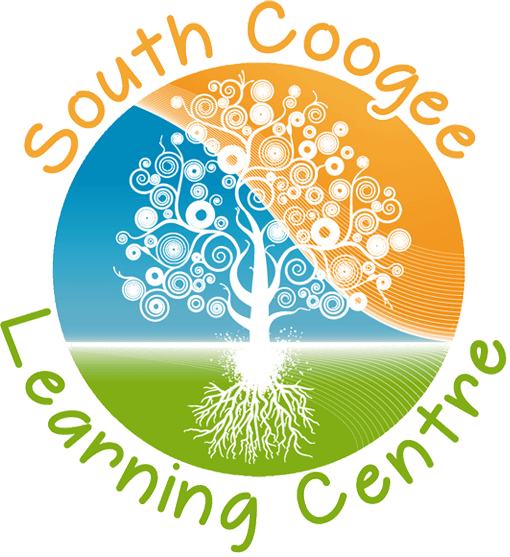Our Programme
The Early Years Learning Framework
Belonging, Being & Becoming is the Early Years Learning Framework for Australia, and is a key component of the government's National Quality Framework for Early Childhood Education and Care. The framework guides educators in the principles, practices and outcomes critical for the development of children in their early years.
Our educators use the framework to develop learning programs responsive to children’s ideas, interests, strengths and abilities, recognising that children learn through their play. We do this in partnership with families, recognising them as children’s first and most influential educators.
Play is one of the foundations of the EYLF. The framework describes play-based learning as ‘a context for learning through which children organise and make sense of their social worlds, as they actively engage with people, objects and representations’ (EYLF, 2009, p. 46).
Our programme is centred upon the three key elements of the EYLF:
- Belonging Children learn from their social contexts – relationships are critical to a sense of belonging, it acknowledges their interdependence with others and the basis of relationships in defining identities.
- Being Children are capable learners from birth and contribute to both family and society. We strive to nurture and respect their individuality and distinctiveness. Children live very much in the present and we value their right to ‘be’ in the moment, exploring who they are and the world around them.
- Becoming Childhood is the beginning of life with many possibilities – ongoing learning, ongoing reflecting. Children experience rapid change in their early years and the framework emphasises learning to participate fully and actively in society.
Childhood does not have to be hurried. Sometimes the best preparation for being five (or four, or three, or two…) is to be four (or three, or two, or one) for a whole year.
Numeracy and pre-reading skills are encouraged and developed according to the children’s interests in small and large groups at their appropriate developmental level.
As children are engaging with early literacy development, our program supports their emerging concepts of reading through awareness of letters and sounds, conventions of reading from left to right and distinguishing the written word from other illustrations or graphics. Literacy also incorporates the element of drawing meaning from texts, through “reading” and interpreting visuals.
EYLF information for families (Pdf) ->
Reggio Emilia Inspiration
The EYLF reflects prominent theories and perspectives in early childhood. One of these is the Reggio Emilia Approach and the ‘emergent curriculum’ which inspires our work with children. An emergent curriculum means a philosophy of teaching and learning that starts with the child’s personal likes and interests, to ensure that learning is meaningful and purposeful.
We recognise the Reggio Emilia as an approach to education that originated in the town of Reggio Emilia in Northern Italy out of a movement towards progressive and cooperative early childhood education.
The Reggio Emilia philosophy is based upon the following set of principles:
- Children must have some control over the direction of their learning;
- Children must be able to learn through experiences of touching, moving, listening, seeing, and hearing;
- Children have a relationship with other children and with material items in the world that children must be allowed to explore;
- Children must have endless ways and opportunities to express themselves.
- Children are innately curious and have strong ideas and theories about their world. They seek to acquire new skills and knowledge through meaningful social relationships. They learn through discovery and exploration.
- We strive to create a beautiful, positive learning environment that encourages the children to play, explore and develop their own ideas, opinions and understanding of the world.
We view all children as strong, competent, resourceful individuals who are capable of directing their own learning.
Investigations or projects may start from a chance event, a posed problem, an item of interest or an experience initiated by an educator.
Planning
The planning of our emergent curriculum grows from listening closely to our children, observation of their behaviours and social interactions, posing questions and ideas and recognising opportunities for discovery and learning. Educators reflect continually on this process of questioning, exploring, discovering and learning.
Benefits
The benefits include opportunities for children to make choices and begin to take increasing responsibility for their learning as well as a sustained interest in and love of learning.
There are increased opportunities for children’s development of self-expression, creative abilities and oral language.
Our transition to school programme
Is embedded within our daily curriculum, guided by the framework and ensuring children’s individual strengths and interests are nurtured. This programme is ongoing throughout the year as we prepare the children for primary school. We hold an annual ‘Transition to School’ evening in collaboration with teachers from South Coogee Primary School, to inform and support parents and carers during the year before school.
Our Environment
Our educators are committed to the importance of creating beautiful environments to help young children's learning including gardening, raising chickens, Stingless bees, worm farming and imaginative play in the mud kitchen using sustainable practices in our large, natural, outdoor environment. We see the environment as an important educator - indoor and outdoor spaces that are secure, safe, welcoming and challenging, with enriching, open-ended resources help promote and inspire play and learning interactions.
Yoga and Fundamental Movement
In addition to our play-based natural outdoor environment experiences, the children’s physical skills are enriched by Yoga and Fundamental Movement experiences for half an hour, twice a week for every room.
Music
Music is a valuable and important part of the program and a specialist music teacher attends twice a week for half an hour in each room, providing an enriching, fun filled music experience. This is in addition to the songs and music included in our daily routines and curriculum by our teachers and educators.






